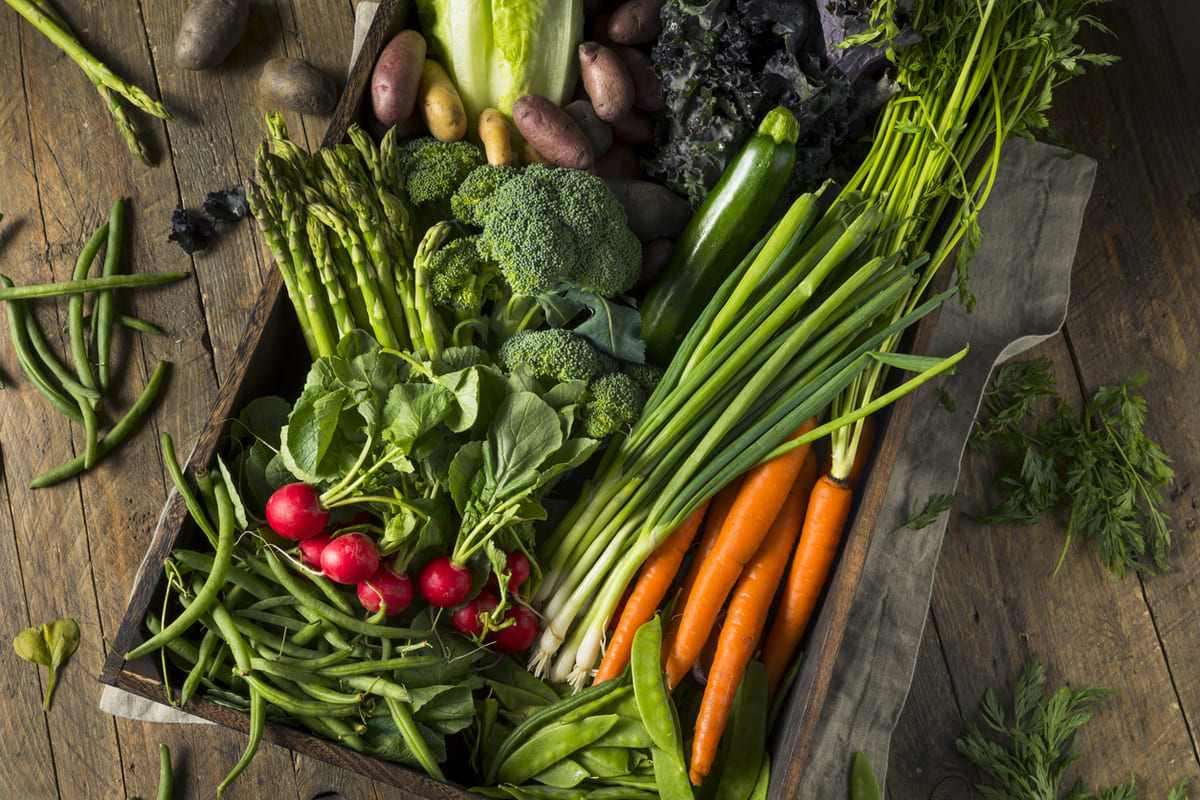After turning 50, a new chapter of your life begins, brimming with opportunities to cultivate well-being and embrace a sense of empowered living. For many women, this journey often leads to exploring new diets that fuel energy, support long-term health, and help in weight management. Among these choices, a plant-based approach offers a sustainable path to nourish the body and nurture a thriving future. Let’s delve deeper into the benefits of including plant-based foods in your diet and ways to transition into this way of life with ease.
Fueling Vitality with Plant Power
As you age, your body naturally changes, and one common concern is a dip in energy levels. Plant-based diets shine here. They are powerhouses of complex carbohydrates, providing sustained energy throughout the day, unlike the quick highs and crashes of processed foods and refined sugars. Whole grains like brown rice and quinoa offer long-lasting fuel, while legumes like lentils and beans provide both carbohydrates and protein for sustained energy.
Supporting Heart Health
Heart health remains a critical concern for many women over 50. Thankfully, incorporating more plant-based meals plays a significant role in reducing the risk of heart disease. Studies have shown that diets rich in fruits, vegetables, whole grains, and legumes are naturally cholesterol-free, and they contain beneficial components like fiber that can help lower LDL levels.
Moreover, certain plant-based sources, like nuts and avocados, can contribute to maintaining healthy HDL levels. Plant-based meals are also generally lower in sodium, and the abundance of potassium in fruits and vegetables can further contribute to healthy blood pressure levels.
Managing Weight and Supporting Overall Well-being

Maintaining a healthy weight becomes increasingly important after 50, and a plant-based diet offers valuable support in this endeavor. Plant-based foods are generally lower in calories, which can be particularly helpful as our metabolism naturally slows down with age.
Also, their high fiber content promotes satiety, keeping you feeling fuller for longer and aiding in portion control. These factors combined can contribute to healthy weight management without feeling deprived.
Beyond weight management, plant-based diets offer a multitude of other benefits for overall well-being. The high fiber content in plant-based foods promotes a healthy gut microbiome, contributing to better digestion, immune function, and even mood regulation.
Plant-based sources are also rich in antioxidants, which help fight free radical damage and protect your cells, strengthening your overall immune system. Studies further suggest that plant-based diets may contribute to a lower risk of type 2 diabetes, certain cancers, and age-related cognitive decline.
Transitioning to a Plant-Based Diet

Embracing a plant-based lifestyle doesn’t have to be an all-or-nothing approach. Here are some practical tips for women over 50 to seamlessly integrate more plant-based options into their diets:
Start Gradually
Don’t overwhelm yourself with a complete dietary overhaul! Begin by incorporating one or two plant-based meals per week. This could be a hearty lentil soup for lunch, a veggie stir-fry for dinner, or a breakfast smoothie packed with fruits and greens. As you adapt to these changes and discover delicious plant-based recipes, you can slowly increase the frequency. Think of it as building a new habit brick by brick, celebrating each small step towards a healthier you.
Explore Plant-Based Substitutes
Craving your favorite comfort food? You don’t need to give up on your favorite dishes entirely! Embrace the world of delicious plant-based alternatives. Swap ground beef for lentils in your taco recipe, experiment with jackfruit “pulled pork” sandwiches, or use cauliflower rice in place of traditional rice. Get creative in the kitchen and discover how many familiar flavors can be effortlessly recreated with plant-based ingredients.
Focus on Whole Foods

While plant-based alternatives can be helpful, the true foundation of a healthy plant-based diet lies in whole, unprocessed plant foods. Imagine yourself browsing vibrant farmers’ markets, filling your grocery cart with an array of colorful fruits and vegetables.
Choose whole grains like brown rice, quinoa, and whole-wheat bread for sustained energy. Don’t be afraid to experiment with new ingredients and discover the diverse flavors and textures that the plant-based world has to offer.
Seek Guidance and Support
Embarking on a new dietary approach can be challenging, and having a knowledgeable guide can make all the difference. Consider connecting with a registered dietitian (RD) or nutritionist specializing in plant-based diets. They can assess your individual needs, create a personalized plan that aligns with your preferences and health goals, and address any underlying health concerns you may have.
You should also consider joining communities or support groups focused on plant-based living. These spaces offer a valuable space to connect with others on a similar journey, share experiences, and learn from each other. You can find several of them online as well!
Enjoy This New Way of Life!
Remember, this journey is unique to you. There’s no single “right” way to embrace plant-based living. Embrace the exploration, celebrate your progress, and allow yourself to be pleasantly surprised by the transformative power of a mindful, plant-powered lifestyle.
Read Next:
The Budwig Diet: Does It Actually Help Prevent Cancer?
Crostini Recipe with Roasted Vegetables and Smoked Mozzarella
Lower Depression and Improve Heart Health With The Mediterranean Diet







